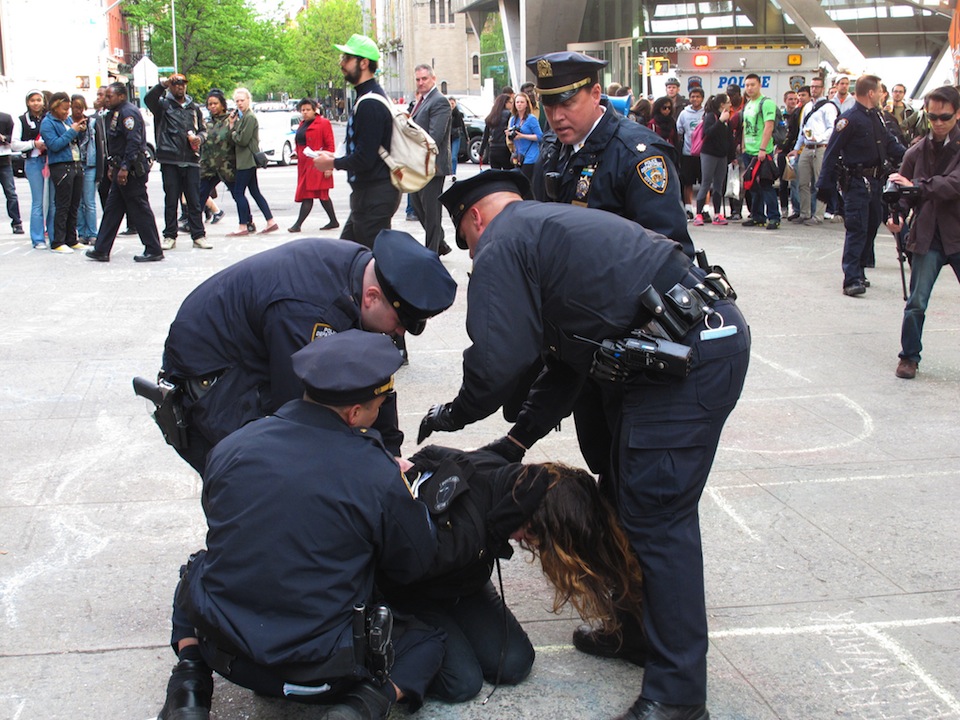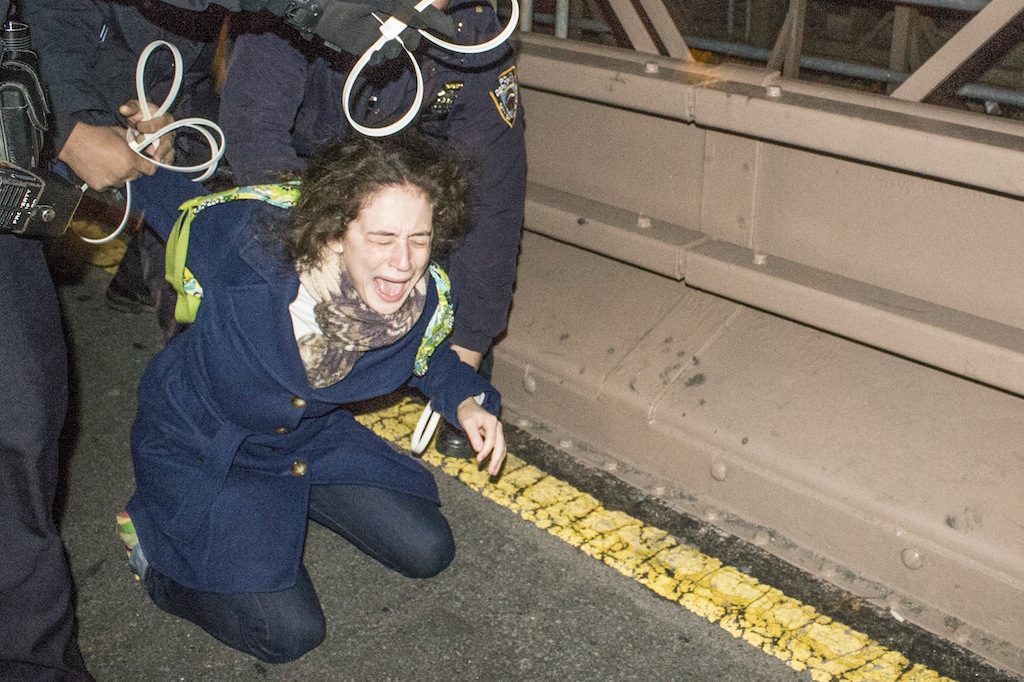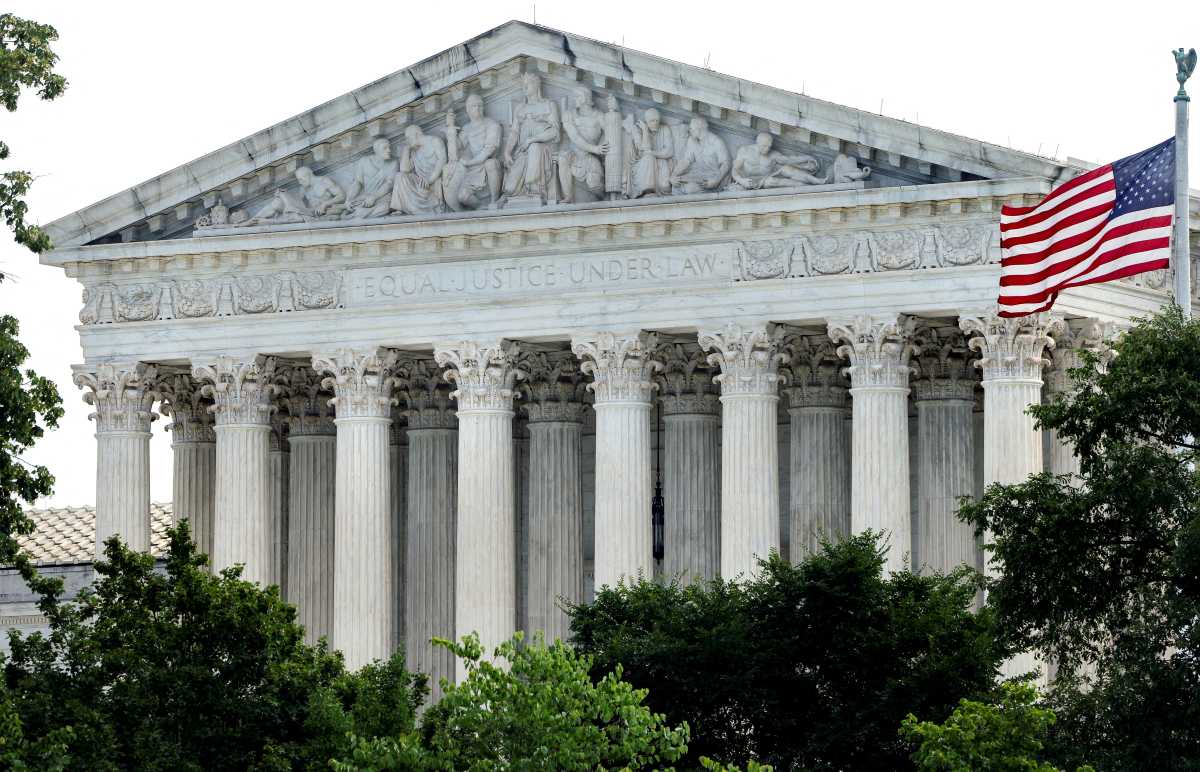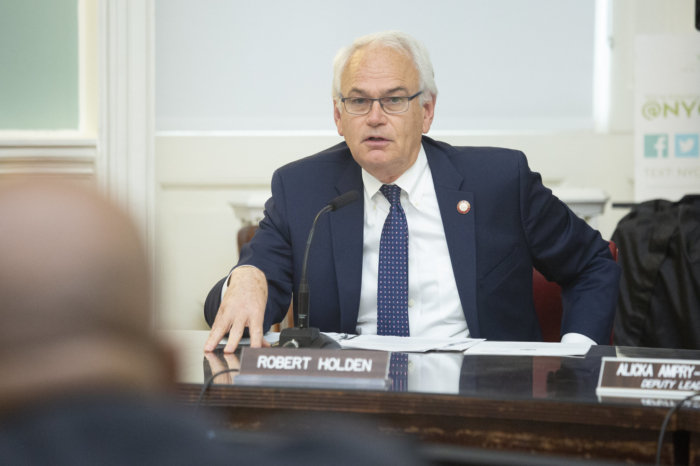
BY GERARD FLYNN | Under current law in New York State, anyone who intentionally prevents or attempts to prevent a police officer — or any peace officer — from making an arrest can be charged with resisting arrest.
Although the Class A misdemeanor carries a maximum penalty of one year in prison, it’s not a sufficient deterrent, Police Commissioner Bill Bratton told reporters Downtown last week.
He wants the nearly 2,000 people in the city who are charged with resisting arrest each year to be hit with a felony, carrying the possibility of serious jail time. It’s a move that has infuriated free-speech advocates.
Not surprisingly, the top cop is finding solid backing from the police unions. But 11 Assembly Democrats have also climbed on board the initiative, having introduced Bill A02899 weeks before Bratton’s announcement, with the intent of establishing “the Class E felony of resisting arrest in the first degree.”
The bill is co-sponsored by Democrats Steve Englebright of Long Island and Felix Ortiz of Brooklyn.
“The Legislature needs to take a look at the procedures taking place during an arrest to determine what penalties should be leveled against perpetrators who resist arrest and act violently,” said Jeff Wice, an Ortiz spokesperson.
But the proposal is a pipe dream and will certainly fail, according to Marty Stolar of the National Lawyers Guild.
“In my opinion, there is no need for such legislation and it stands zero political chance of passing the Legislature,” he told The Villager.
Stolar has spent many hours in court defending Occupy Wall Street members accused of the offense, which he said a person can be tagged with for the flimsiest of reasons.
“Protesters can get arrested and charged with resisting arrest just because they moved their wrist the wrong way,” he said. “I have seen too many complaints.”
The attorney suspects recent protests around the country and in the city go a long way toward explaining Bratton’s move. If the change is made, the net effect would be to deter people from participating in protests, he said.
In recent days, the proposal has been generating a lot of Internet buzz, including an online petition on Change.Org that has garnered more than 250 signatures.
That felony convictions come with “life-altering stains” was given as one reason for the petition. That’s an effect a former client of Stolar’s, Cecily McMillan, has been finding out since recently being released after a three-month stint on Rikers Island.
She is writing a book on her experiences in the Occupy movement for The Nation, living in Atlanta and subsisting off the magazine’s stipend, she said last week. Her conviction — for felony assault on a police officer — has severely curtailed any employment opportunities, she said.
McMillan, a veteran activist, said she knows many of the tricks to avoid arrest, such as letting one’s body go limp, which she called a “long-held historical practice in order to shift the balance of power in a protest scenario.”
Yet she said there are numerous ways to be accused of resisting arrest. She called Bratton’s proposal “insane.”
The move, she charged, is yet another attempt by Mayor Bill de Blasio to smooth things over with the police, after their well-publicized falling out after the nonindictment in Eric Garner’s chokehold-arrest death. Had resisting arrest been a felony several years ago, there might have been a much different Occupy movement, she noted.
Calling New York “one of the least progressive cities I have ever lived in,” she said her felony conviction there means she must now virtually tiptoe around America lest she end back up in the slammer.
“For five years I can’t participate in civil disobedience,” she said.
“If I get into a misdemeanor, I am on the first bus back to Rikers and six years in prison for sitting down to protest the murder of a man,” she said. “This is criminalizing protest.”
Police unions did not respond to requests for comment.
An activist group, the Justice Committee, issued the following statement from Loyda Colon, its co-director:
“Recent analyses prove what our members and constituents have known through experience for years: that overly aggressive officers frequently use this charge to cover up police brutality and misconduct.
“Upping the penalty for a charge that is so often used unjustly and illegitimately amounts to an attack against New Yorkers of color.”




































